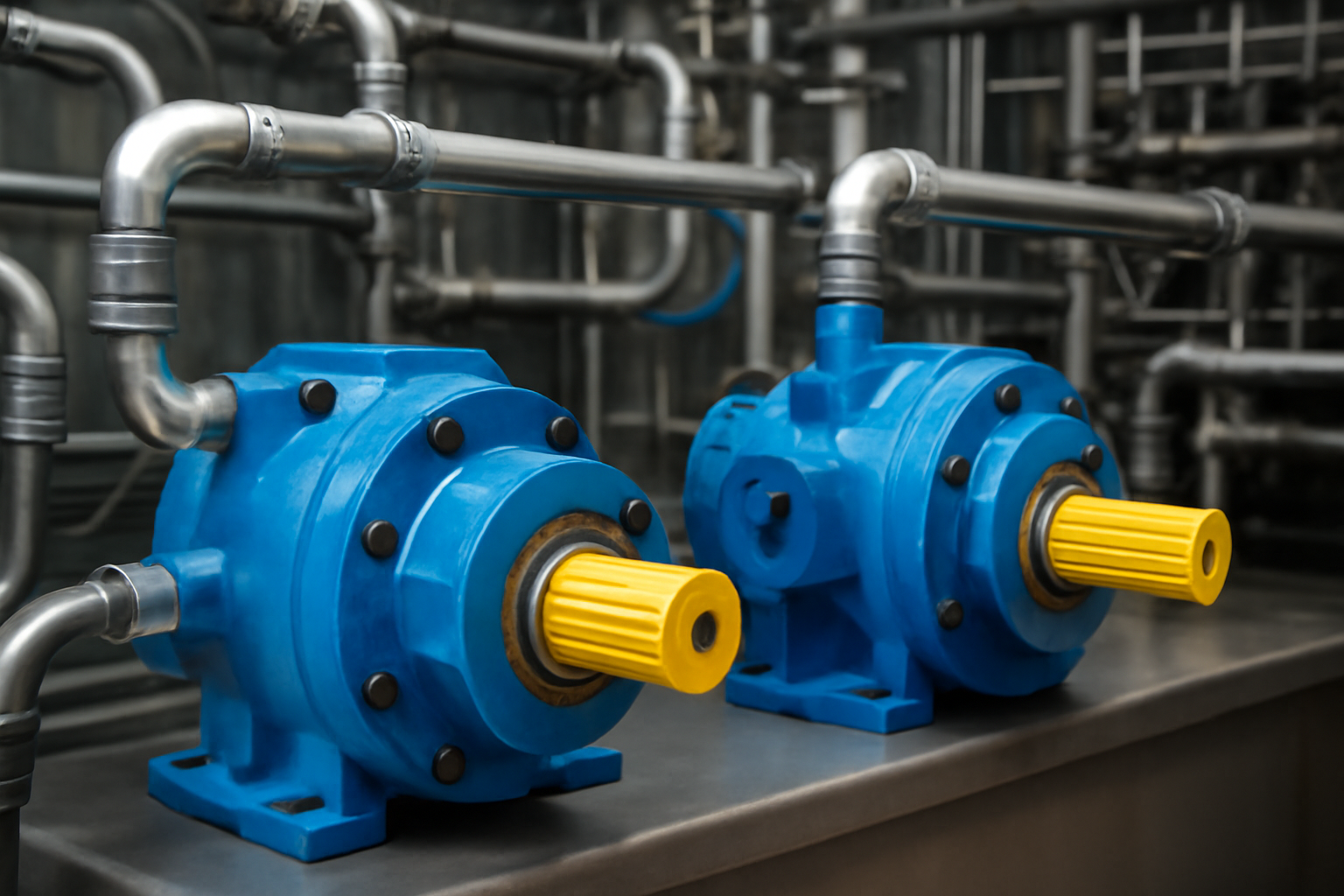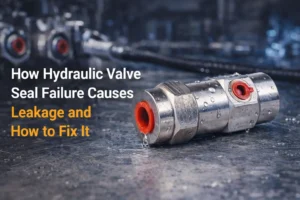The hydraulic internal gear pump is a crucial component used in many industrial systems due to its efficiency, reliability, and quiet operation. Hydraulic internal gear pumps are capable of handling a wide range of fluids, making them ideal for various applications, including manufacturing, chemical processing, and heavy equipment. The pump’s unique internal gear mechanism enables smooth fluid transfer, precise flow control, and minimal pulsation, thereby enhancing system performance.
In this blog, we will discuss the advantages of hydraulic internal gear pumps and explore their applications across various industries. Furthermore, we will also explore the differences between hydraulic internal gear pumps and other gear pumps in the industry. So let’s get started and learn more about hydraulic internal gear pumps.
Comparison With Other Types Of Gear Pumps
The hydraulic internal gear pump is different from other displacement pumps. Versatile performance in high viscosity and precision-demand environments. When compared to other types of gear pumps, such as external gear pumps and low-pressure pumps, it offers several design and performance advantages in specific gear pump applications.
Internal Gear Pumps Vs External Gear Pumps
Applications: Internal gear pumps are utilized in various industries, including chemical processing, food and beverage systems, and industrial lubrication, where they provide precise control over fluid viscosity, which is crucial for operational efficiency.
Design: The internal pump features two gears of different sizes, with one gear rotating inside the other. In contrast, the external gear pump uses two identical gears that rotate against each other.
Fluid handling: A hydraulic internal gear pump is better suited for handling sensitive fluids as its design ensures smooth flow, making it best for applications that demand fluid stability and accuracy.
Internal Gear Pumps Versus Lobe Pumps
Design and mechanism: Low-pump designs utilize non-contacting rotors, whereas internal gear pumps rely on interlocking gears and crescent-shaped seals to ensure sealed fluid movement.
Efficiency: Internal care pumps demonstrate higher efficiency, particularly when handling high-viscosity fluids. In comparison to lobe pumps, it offers a clear edge where energy conservation and productivity are key considerations.
Flow characteristics: The hydraulic internal pump provides low pulsation and smooth flow, which is best for dosing, metering, and hydraulic systems that demand minimal vibration at high precision.
Application Of Hydraulic Internal Gear Pumps In Various Industries
Chemical plants
In chemical plants, hydraulic internal gear pumps are used for transferring corrosive and sensitive substances. These types of gear pumps are built with corrosion-resistant material, such as stainless steel, which ensures safety, longevity, and minimal leakage. They are considered the best option for handling harmful chemicals without compromising on flow precision.
Food And Beverage Industry
Food-grade internal gear pumps are designed with sanitary construction to meet hygiene standards. They are used to handle a variety of food textures, from syrup to paste, while preserving the product’s integrity simultaneously. Their easy-to-clean design and pulsation-free flow of the gear pump protected them against various contamination and product degradation.
Petrochemical Sector
In the petrochemical sector, hydraulic internal gear pumps are used for handling crude oil, lubricants, and other high-viscosity petroleum products. Their designs ensure that they can handle extreme operating conditions while maintaining consistent performance in storage, transfer, and processing tasks.
Automotive Industry
Hydraulic internal gear pumps play an important role in lubrication and hydraulic circuits. These gear pumps ensure constant pressure and flow, which is essential for power, steering, brake system, and engine lubrication. The efficiency and reliability of the pump enhance the vehicle’s performance and durability.
Pharmaceutical Manufacturing
Process and contamination are the two critical parts of pharmaceuticals. Internal gear pumps deliver the exact dosing with gentle, pulse-free handling. These gear pumps are built with inert materials that prevent chemical interaction, ensuring accuracy and product purity.
Advantages Of A Hydraulic Internal Gear Pump
Energy Efficiency
Hydraulic internal gas pumps are designed to minimize internal. The page ensures that energy is always directed towards fluid movement. This efficient fluid transfer reduces the overall operating cost and support. Sustainable energy use in different operations.
Versatility
One of the most important gear pump-out applications is handling fluid across a wide viscosity range. Internal gear pumps ensure a stable output without compromising performance, making them ideal for various industries, such as chemicals, food processing, and other applications with fluid properties that often change.
Smooth And Pulse-Free Operation
Hydraulic internal gear pumps offer smooth and low-pulse flow due to their innovative design. This improves stability, reduces vibration, and enhances the lifespan of connected equipment such as valves and piping.
Conclusion
The hydraulic internal gear pump offers unmatched reliability, energy, efficiency, and a wide range of gear pump applications. The internal gear pump’s ability to handle different viscosities, smooth flow, and smooth operation makes it one of the leading components for modern industries. If you are also seeking dependable hydraulic solutions, please contact THM Huade today to learn more about our advanced internal gear pumps tailored for your industry.
Frequently Asked Questions
What are the advantages of hydraulic internal gear pumps?
Common advantages of hydraulic internal gear pumps include high energy efficiency, versatility, long-term reliability, and smooth, pulse-free operation.
What is the principle used in a hydraulic gear pump?
Hydraulic internal gear pumps produce flow by carrying fluids between the teeth of two machine gears.
What type of hydraulic pump is most efficient?
Piston pumps are renowned for their high efficiency and suitability for applications involving pressure and fluorides; however, they are more complex and more expensive than other types.



